How and why I’ve curbed my social media use
You may have self control and a healthy relationship with social media, but I sure didn’t!
While social media has created some great relationships and experiences for me as a writer, lately I’ve found myself craving space from it. I’ve flirted with quitting social media in the past, but I’ve never been able to do so. After all, I really do use Instagram to promote my writing and to keep in touch with friends. But, like so many, I noticed in recent years that the almighty algorithm was serving me ad after ad for socks, journals, baby gear, clothes, and that if I clicked one recipe for sourdough bread, I suddenly got fed twenty accounts of anti-vaxxer trad wives churning butter (churning butter = cool. Anti-vaxxing = not). And while I was wading through all these ads and accounts, the same thoughts kept popping into my head: Wait a second, why am I here? The world is not in my phone. With my finite amount of time, I do not want to spend all of these minutes horror scrolling through accounts that have me guessing whether or not the people in them voted for Trump. Don’t I have better things to do? You’d think so! And yet, hours of present moments unspun themselves into wasted time as I scrolled and scrolled, dissociating. Eventually, I started noticing that I felt physically seasick after using my phone for more than ten or fifteen minutes, and so I downloaded an app called One Sec, which triggered a visual of a breathing exercise to come up every time I tried to open Instagram. It also told me how many times I’d opened the application in the past twenty-four hours. The numbers it showed me were terrifying. For a while, this worked, but then it didn’t again, and I fell back into sliding my phone open when I had down time.

So what finally made me find the strength to log out, delete the app off my phone, and NOT redownload and log back in after only a few hours as I’d done so many times in the past?1 Well, it came down to a few things. First, I deeply wanted to write. For those of you who don’t know me personally (hi! I’m SO happy you’re here) I am a writer with one book to my name, a dozen or so pubs in lit mags, and stacks upon stacks of journals in a waterproof box in my basement. After I had my son in late 2022, writing became harder for me. I turned instead to reading. For about a year and a half, I read whenever my baby slept, which was a lot. But as all writers know, when you read really good writing, it makes you want to write. There was a problem, though. Whenever I sat down to write, ideas and sentences came to me in the shape of truncated, quippy Instagram captions. And those kind of surface-y, click-bait-y sentences could not hold the ideas and feelings that I wanted my writing to hold.
And those captions are not easy or natural for me to write. I feel like me being good at the internet is like the dial up days of old—I can get there, it just takes a while and makes a lot of super annoying beeps and buzzes on the way. In order for me to write the quippy, clever yet nonchalant, buzzy yet timeless, meme-y/twitter-y/caption-y copy that would do significant work for me in gaining followers and building a platform, I’d have to write so many cringeworthy duds. I’d have to study TikTok trends. I’d have to figure out how to spend less than six hours on a Reel that I’d then watch back through my fingers like I was witnessing the scariest scene in a horror movie and press delete anyway. I’d have to create a digital “thing” and then like and respond to every comment from every person. I’d have to think about words like “boost” and “algorithm.” Honestly, I’d have to be another person because I have zero interest in doing any of the lifting required of being an influencer, and even if I did do all of those things, I’d still have to be at the whims of an intersection of technology I have no interest in understanding and luck.
My social media obsession truly crumbled in a two-fold way. First, I started reading The Age of Innocence by Edith Wharton. I was moved by the long and winding sentences and the interior lives of characters who were created nearly a hundred years ago. I read and read and wanted to write. Secondly, the whole “demure” thing took over the internet and I just couldn’t handle it. It was the proverbial straw that broke the camel’s back (guess the camel was too demure…).
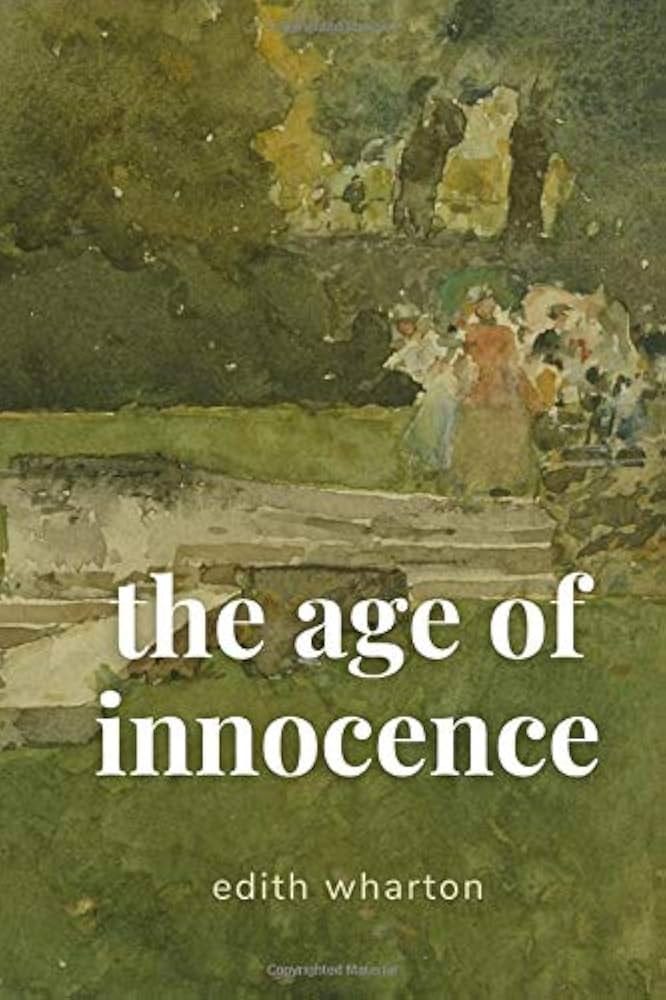
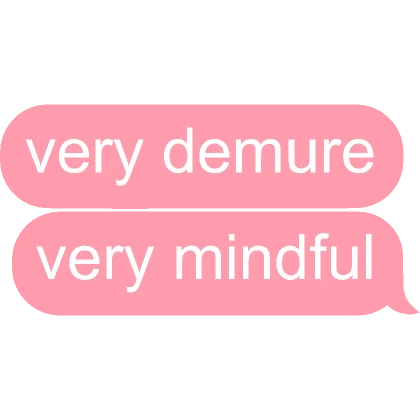
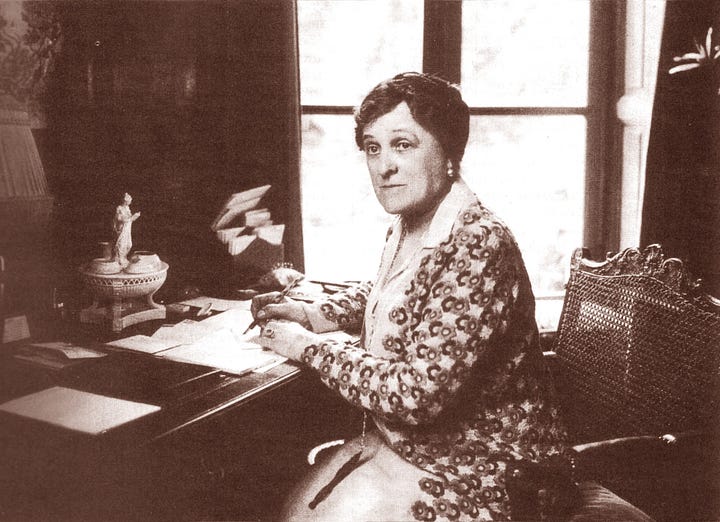
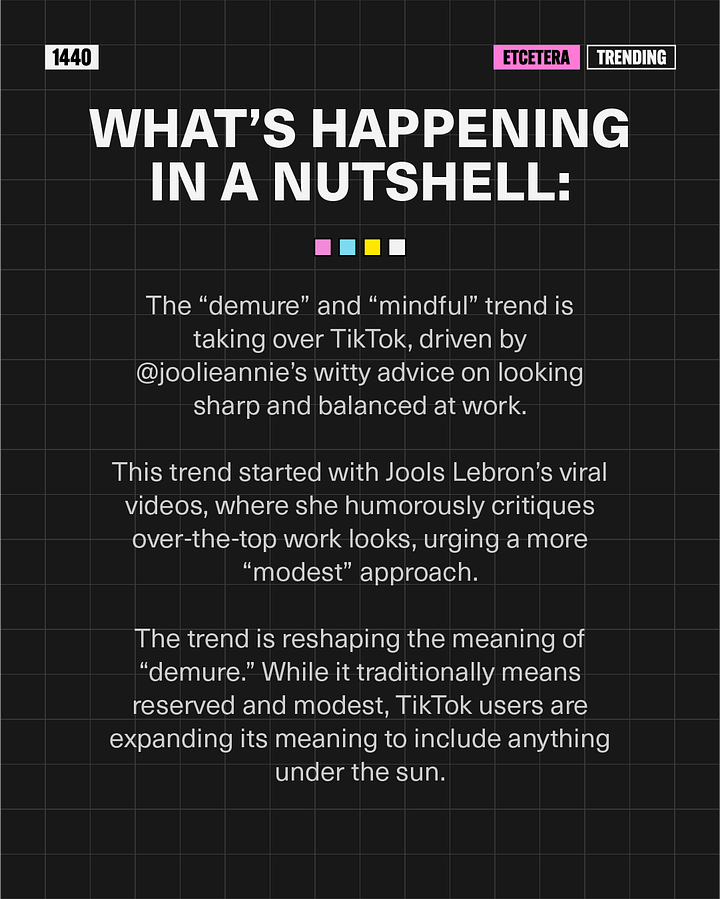
So I deleted it all and I started writing. And writing. And writing. I felt energized. My brain felt unlocked and ideas flowed, unrestricted by the assumed attention spans of social media users. Because I was writing sentences in a notebook that nobody was seeing, I felt free to play and be messy. I wrote with a pen, not my thumbs, and I felt my body and my mind forge a new connection atop forgotten pathways. Since I logged out and deleted the apps off my phone, I have largely remained off. In addition to giving me so much time back, it has freed up an overwhelming amount of space in my brain that I can now dedicate to other things. I am no longer circling the drain, revisiting posts by people I’ve obsessed over; I’ve stopped comparing myself to others so much because I’m not looking at or listening to people I’m not choosing to actively engage with; I know less about what’s going on in peoples’ lives, so when I asked them what’s new, the information they share truly is new to me, leading to much more interesting and authentic conversations. I also want things less, and I’m figuring out my own taste in clothing and in books. My brother-in-law asked the family to start thinking about our Christmas lists (I know, I know, it isn’t even Halloween yet!!) and I realized that I didn’t have a handful of things I wanted that the internet told me I wanted. Instead, I really had to think about it. I realized we have a number of chipped cereal bowls that I love and would like replaced. This is much more meaningful than a random dress the algorithm served me. Another positive is that when current events come up in conversation, I ask more questions instead of spitting out bite-sized pieces of text from an Instagram carousel meant to go viral.
I think the reason why this social media detox worked for me is because I wasn’t just running away from how social media made me feel, even though I feel like that should have been enough (depressed, overwhelmed, anxious, sluggish, etc.). Instead, I was running toward something: I wanted to have more time and brain power to write. I wanted to stop comparing myself to others. I wanted to cultivate a life of curiosity and interest that existed outside of my phone. I wanted to be interesting myself, not just someone who repeated funny tweets she couldn’t write herself that she’d seen circulating on Instagram (which is what I often felt like I did, though I’m sure my friends and family would tell me I offered much more than that—thanks guys!). I wanted to feel like a creative human writer in a world where it’s apparently cool to have AI write personalized songs for your commute or rip off other artists while making images for social media posts or regurgitating others’ ideas and words into children’s books to make a quick buck. I wanted to get far, far away from all of that. I wanted to pick up a notebook, sit outside with the flowers and the trees, and spend time with my brain, which is mine and only mine to mine for ideas, for emotions, for curiosity and questions. What more could I possibly need?
Do I still reach for my phone too much? Do I check my email an inordinate amount of times in a day? Do I still feel like I need to fill an “empty” moment? Yes, yes, yes. But these things are getting better, and I’ve realized that the truly empty moments are the ones I’ve spent staring at my phone screen when I could have been looking at my sweet little boy’s face or petting my dog or reaching out to tickle my partner or crouching down to observe a caterpillar. Not long before we had to put Cleo to sleep, I saw a quote on the internet2 that said we will see a finite amount of sunsets in our lives. Translate that to hugs. To kisses. To conversations. In those months leading up to Cleo’s death, when I knew it was coming soon, I’d think of that quote and I’d set my phone down and I’d go and lay with her, talk with her, and kiss her. My time with her was finite and I could feel it. But so often we rush around, “killing time.” When I was in training to work behind the salad bar at my college’s dining hall during my freshman year, the food service manager Randy told us in a pump up speech that it was the small moments that make up a life. Don’t overlook the joy that can be found here, he was saying. I didn’t even have a smart phone until my senior year of college; if I had had a smart phone then, I might have been surreptitiously checking my texts and missed what Randy was saying.3
I would be a ball of anxiety if I let myself think of all the ways I could be separated from my loved ones or all the time I’ve wasted on anxiety, my phone, rewatching Gray’s Anatomy for the third time, anger, or guilt, but I do think it’s a worthy question: How do we want to spend the small moments of our lives?
I know how I want to spend mine, and it’s not in here (at the moment, I’m typing this essay on my phone)—at least, not that much. I want to be deliciously lost in love for my family, in laughter at pizza parties, in beautiful words bewitching me on the page, in the maddening, terrifying, exhilarating wildness of a blank page being written on, in the quiet hum of my backyard. For being an artist is a way of being in the world, and I want to be in the world.
Why did I become a writer? A bird’s feather on my windowpane in winter and all at once there arose in my heart a battle of embers never to subside. —Rene Char
Another thought: If I don’t share what I’m doing widely on social media, people won’t know about it unless they ask me directly. They won’t see my new haircut, they won’t hear about every book I’ve read or show I’ve loved, they won’t know about the adventure I had with my son the other day, and you know what? That’s okay. In fact, everything feels a little more special, a little more real, when I move through and love it in real time, and then I let it go.
I have always been one of those people who, when hearing that someone quit social media or took a long break from it, asked: How??? I didn’t think I’d ever be able to do it. But for me, it took having a larger goal—working on a writing project that I knew would take time and energy—to actually kick the habit and, in doing so, gain a richer experience of a perspective I knew would be true: That my life is better without social media. And now that I’ve tasted that sweet, sweet life, I don’t know what it’s going to take for me to go back, at least in any serious way. I’m sure I’ll pop on from time to time, especially to promote my writing (Blech! That’s an essay for another day!), but I don’t have plans to redownload the app and leave it, beckoning, on my home screen. Instagram might say it misses me in those weird little emails they send when you don’t log in for awhile, but I know it doesn’t. It isn’t an human. It doesn’t have feelings. But I am and I do, and I don’t miss Instagram back. So there, Mark Zuckerberg.
I know that many have to use platforms like IG for work, and that for some, it is a fun tool to stay connected with others and the larger world. Would my career as a writer benefit from social media? Maybe. But not enough for me to care to find out. I’m a person prone to extremes. I do deep dives. I often have to talk myself out of an all-or-nothing mentality. Social media just isn’t good for my mentality. Maybe it’s okay or good for yours! That’s great! But if it isn’t, let me tell you, as someone who wondered if I would miss finding out what some influencers named their children: you can Google it.
Have you ever quit or taken a break from social media? How did it go? I’d love to hear about your experiences in the comments. Wherever you are, I hope you are safe and feel loved. More Halloween Heart essays are coming your way next week! Until then, take care.
With love from my kitchen table,
Kaia
When I told my husband about this post, he laughed and said, “You’re posting about quitting social media on social media?” To which I say: I know, I know, and YES, okay?? Substack technically is social media, but it is like social media lite. Except not. Because people write essays and stuff here, so it’s actually quite hard as opposed to lite. Hard as in badass. On a scale of beverages, Substack is a full bodied red or a beautifully crafted Old Fashioned. Instagram is Sprite. Or maybe a Barefoot pink wine cooler in those purse-sized bottles.
To be clear, I like the internet, especially Wikipedia. I do not like social media, at least not very much, which for the purposes of this essay largely means Instagram. P.S. Don’t you love a good footnote? I do!
Randy was right about working in the dining hall. In my XXXL collared shirt (they ran out of my size) and my 80’s-esque side-ponytail (it was 2009), I made so many great memories with Usa and Mariela, the women who worked the dining hall full time and shared the salad bar shift with me. I also had to fill the bowl of peas for an ex-boyfriend (humbling!) and learned just how chilly it is in a giant walk-in, which I feel will be useful for a shorty story I write someday.


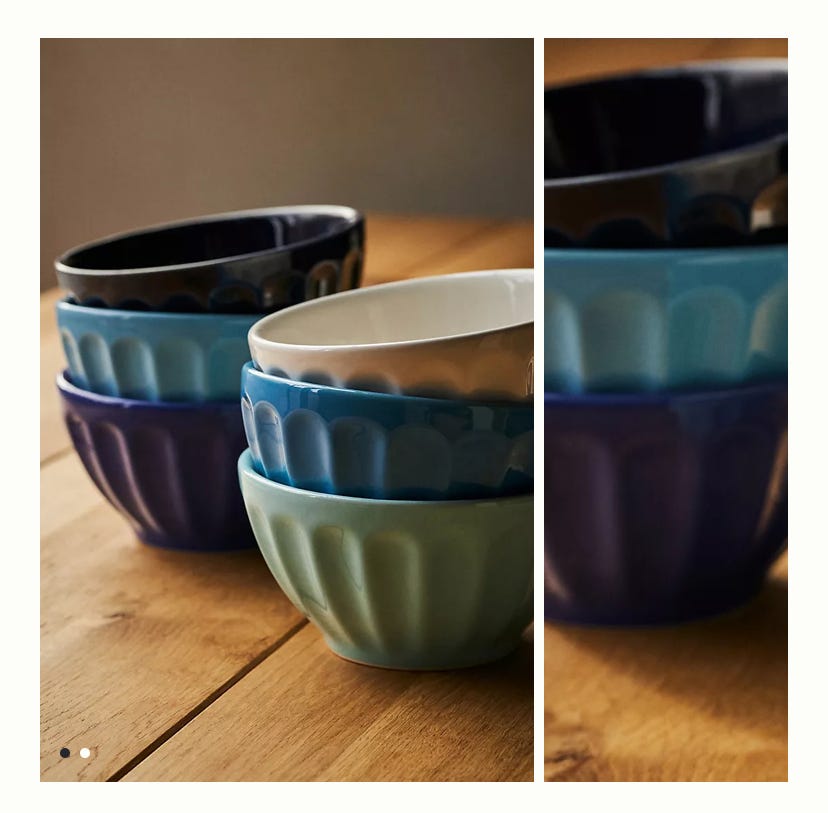
I don’t have TikTok, gave up Instagram 3 years ago maybe, and only go onto Facebook to check Sonya’s preschool pictures. It’s so freeing. You go girl.
Omg this is perfect timing as I’ve been slowly fading away from instagram for months and i have a Substack post about it in the works to release this weekend!
I relate to all of this so much! And additionally a big motivation for me to quit was the example i want to be to my daughter, who I’m sure will have her own run in with social media when she’s older.